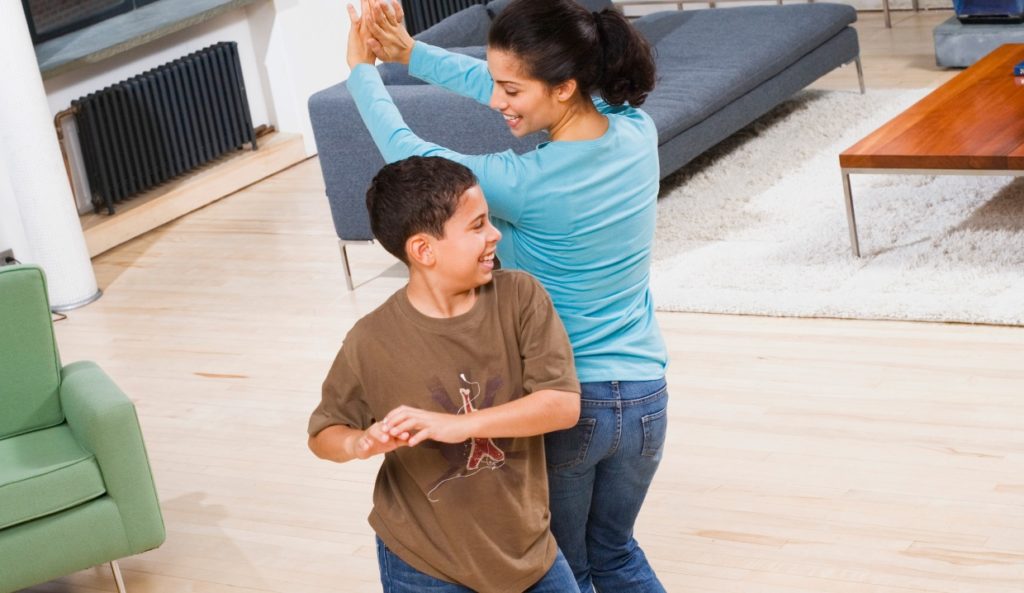Move more: physical activity tips for work and home
The causes of the obesity epidemic are numerous and complex, but no doubt our increasingly sedentary lifestyle is a key contributor.
Experts recommend a minimum of one hour of physical activity per day—for children and adults alike—but it doesn’t have to happen all at once. In fact, peppering the day with short bursts of low-intensity physical activity has substantial health benefits that rival longer single sessions of vigorous activity.

Why do we need physical activity breaks?
Frequent activity breaks help the heart work more efficiently. They also help trim waistlines, improve blood pressure and lower triglycerides and other blood fat levels. Other facts:
- Sitting for prolonged periods of time causes cells to produce 50% more fat
- Walking at least a mile a day can maintain brain volume and prevent cognitive impairment
- Physical activity promotes good sleep
- Active children are more likely to grow up to be active adults
- Active adults are more likely to have active children
Tips to get moving more
Start small. Look for simple changes you can make to incorporate more movement into your everyday routines. Think about reducing the amount of time that you are sitting rather than focusing on organized exercise programs.
Consider using a pedometer, physical activity tracker, or tracking technology on a smartphone to get an idea how many daily steps you are taking—a solid target is 10,000 steps per day. Try one or more of the following physical activity tips as well:
At the office
- Take the stairs instead of the elevator or escalator
- Park farther away from the entrance and walk
- Walk to a colleague’s desk instead of sending an email
- Use printers and copiers that are farther from your desk
- Take a walk at lunch or lap the building before you leave for the day

At home
- Walk the dog instead of putting him in the backyard
- Turn on music and dance
- Jog in place or do jumping jacks during commercials of your “can’t miss” television program
- Involve the whole family—the more the merrier!
- Schedule active time—for example, 20 minutes before or after dinner each night, or every Monday and Wednesday

You’re more likely to keep new habits if you make gradual changes to increase the amount of physical activity you get each day.
Adapted from Wellness Council of Indiana’s Simple Changes that Make a Big Impact: Moving More
Did you know…
Physical activity also affects students’ academic performance in school. Learn more about this connection and what schools can do to keep kids active throughout the school day.

Topics: Outdoor Activity, Physical Activity
Subscribe for more
Want more ideas for healthy schools, workplaces, child care providers, and families? Subscribe to our blog for weekly tips delivered right to your inbox!
Healthy school party ideas: Valentine's Day snacks, activities NEXT »
New healthy workplace guides support your employee wellness program
